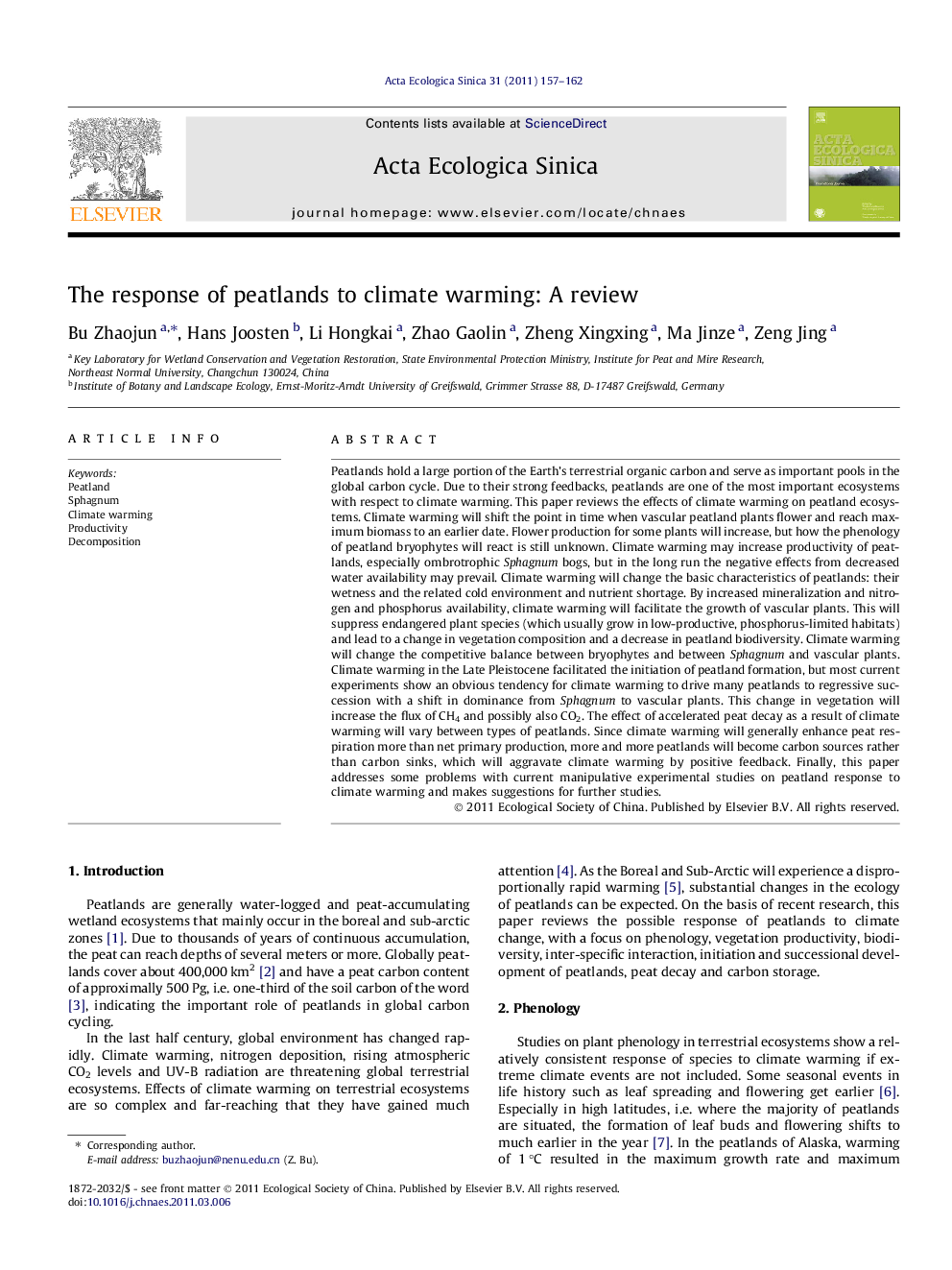| Article ID | Journal | Published Year | Pages | File Type |
|---|---|---|---|---|
| 4380037 | Acta Ecologica Sinica | 2011 | 6 Pages |
Abstract
Peatlands hold a large portion of the Earth's terrestrial organic carbon and serve as important pools in the global carbon cycle. Due to their strong feedbacks, peatlands are one of the most important ecosystems with respect to climate warming. This paper reviews the effects of climate warming on peatland ecosystems. Climate warming will shift the point in time when vascular peatland plants flower and reach maximum biomass to an earlier date. Flower production for some plants will increase, but how the phenology of peatland bryophytes will react is still unknown. Climate warming may increase productivity of peatlands, especially ombrotrophic Sphagnum bogs, but in the long run the negative effects from decreased water availability may prevail. Climate warming will change the basic characteristics of peatlands: their wetness and the related cold environment and nutrient shortage. By increased mineralization and nitrogen and phosphorus availability, climate warming will facilitate the growth of vascular plants. This will suppress endangered plant species (which usually grow in low-productive, phosphorus-limited habitats) and lead to a change in vegetation composition and a decrease in peatland biodiversity. Climate warming will change the competitive balance between bryophytes and between Sphagnum and vascular plants. Climate warming in the Late Pleistocene facilitated the initiation of peatland formation, but most current experiments show an obvious tendency for climate warming to drive many peatlands to regressive succession with a shift in dominance from Sphagnum to vascular plants. This change in vegetation will increase the flux of CH4 and possibly also CO2. The effect of accelerated peat decay as a result of climate warming will vary between types of peatlands. Since climate warming will generally enhance peat respiration more than net primary production, more and more peatlands will become carbon sources rather than carbon sinks, which will aggravate climate warming by positive feedback. Finally, this paper addresses some problems with current manipulative experimental studies on peatland response to climate warming and makes suggestions for further studies.
Related Topics
Life Sciences
Agricultural and Biological Sciences
Ecology, Evolution, Behavior and Systematics
Authors
Bu Zhaojun, Hans Joosten, Li Hongkai, Zhao Gaolin, Zheng Xingxing, Ma Jinze, Zeng Jing,
